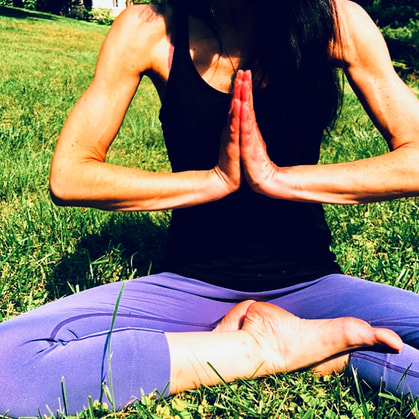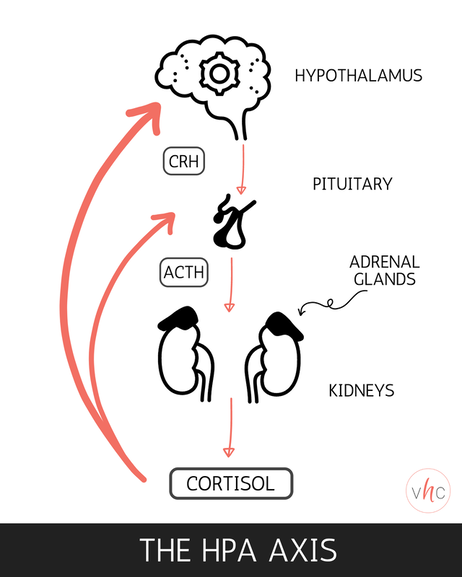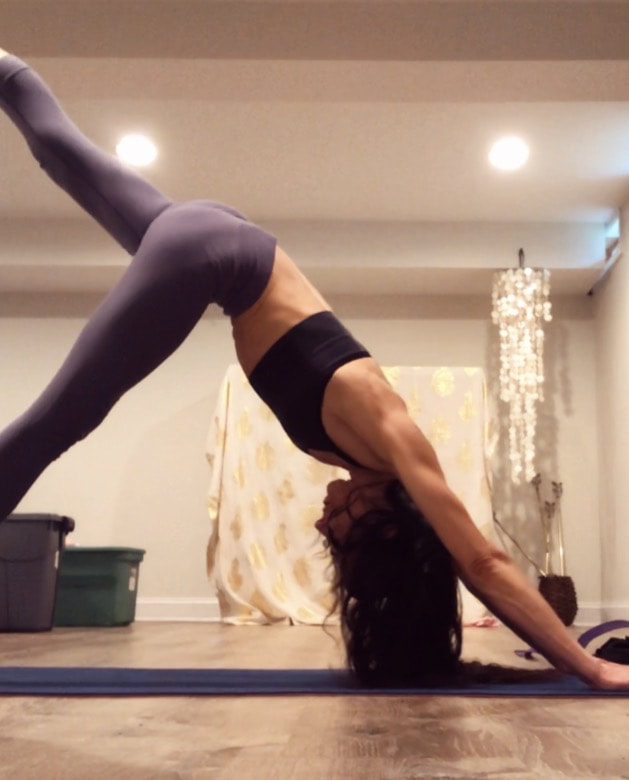|
Feeling a little stressed lately? A little on edge? Dare I say completely frustrated and overwhelmed? HAPPENING NOW: unavoidable, long-term stressWe are all dealing with unavoidable, long-term stress right now due to COVID-19 and political unrest. We are faced with grieving the lack of normalcy and life as we knew it, as well as emotional effects from:
As if that wasn’t enough, we have the added burdens of juggling work and family life. Woah. My head is spinning just listing these. pause and take a deep breathBefore reading any further, pause, and take a deep breath. No really. I’ll wait. In through your nose. I’m talking about a really deep one. One that fills up your lungs and makes them expand like you’re filling up a balloon as BIG as you can get it so that there won’t be any room at the end to tie it without it bursting.  Deep breaths to reduce stress. Deep breaths to reduce stress. Now hold that air in for a few moments and slowly release the breath out. Now, imagine that the balloon whizzing around the room releasing its air is you releasing your unwanted stress. Phphphphhhh. That’s right, let it go. While I do recommend deep breathing to reduce stress, I promise this is not the one simple change I will share with you now. you are not aloneWe find ourselves in this position both individually and collectively. The American Psychological Association (APA) is currently tracking the state of stress in America. Two separate surveys were taken of more than 5,000 Americans between May and June 2020, resulting in “Stress in America 2020: Stress in the Time of COVID-19, Volume Two.” According to the APA:
what is stress, anyway?Stress is a normal part of everyday living. It can even serve us well by acting as a strong motivator, driving us to achieve and stretch us beyond expectations that lead to countless possibilities. Stress becomes unhealthy and has long-term health consequences if it interrupts our daily functioning and is chronic. When we perceive a stressor (threat), our body responds to protect itself and deal with that stress (threat). You can thank your hypothalamic-pituitary-adrenal (HPA) axis for that. It is quite useful when necessary! First, the hypothalamus, a collection of nuclei located in the brain, signals the endocrine system by releasing corticotropin-releasing hormone (CRH) to the pituitary gland also located deep inside the brain. It’s saying, “Pump up the volume on the hormones, would ya? We have a situation here!” The pituitary gland does not disappoint, and dutifully secretes adrenocorticotropic hormone (ACTH). It’s saying, “We’ve got work to do, increase production!” So, the adrenal glands, located above the kidneys, receive this signal and increase production and release of cortisol making energy available to attend to that threat— real or perceived. This response regulates our metabolic, cardiovascular, immune, and behavioral processes. We have a negative feedback loop, “Stop production! I said, stop production! We’re good on the cortisol and all that other stuff for now,” which starts the down regulation of the amount of these hormones in our body. However, when we are under chronic stress, as most of us are now, this down regulation may not happen properly and can cause anxiety and long-term health effects. how does stress affect our health?Chronic stress can cause, worsen, or increase risk for: insomnia, weight gain, hypertension, cholesterol levels, heart attack, stroke, heartburn, stomach pain, change in appetite, constipation, diarrhea, weakened immune system, autoimmune disease, headache, musculoskeletal pain, affective disorders, major depression, risk-taking behavior, decreased sexual desire, decreased sperm motility, abnormal sperm morphology, prostate and urinary infections, irregular menses, difficulty conceiving, increased aggravation of PCOS, HPV, PMS, menopause, decreased cognitive function, memory loss, worsening of pre-existing mental health conditions. So, why am I telling you this if you already feel like hiding in a closet until 2022? Because there are simple things you can do today to start taking control of your stress. Reduce Stress With One Simple Change: Practice Self-Compassion Let’s say you’re on a Zoom call with work (if you still have work), your kids are screaming in the background, the dog is barking, you’re wondering if you have hidden the laundry from your boss’s view, and you just got a ping that school is not going back until November. Your call ends, you snap at your kids, they get into a fight and you feel terrible. You become self-critical, harsh, shaming...which, in turn, increases that stress/threat loop. How would the same situation look and feel differently if we instead were to treat ourselves the way we would treat a good friend or a loved one in the same situation—with compassion, empathy and forgiveness? What effect would it have on our stress level? On our overall physical and mental health? On our happiness and on those around us? To Have Self-Compassion:
Does Self-Compassion Really Reduce Stress? Self-compassion actually helps to stop the threat response. The signal the brain receives is, “I’m feeling just fine. No need to be alarmed. We’re cool. Rock that mask. You are loved.” Now, instead of all those stress hormones being signaled, the hypothalamus is going to signal the release of a different hormone, oxytocin. This hormone is a nice, feel-good reward itself. It can reduce cortisol levels, lower blood pressure, accelerate healing, promote positive social interactions, increase pain and discomfort tolerance, and relieve anxiety. We aren’t changing the situation we are in. But we are letting our body know it doesn’t have to remain in a chronic threat response. We can achieve all of this by simply changing how we speak to and treat ourselves. Having self-compassion is associated with lower distress, reduced feelings of shame, increased health-related quality of life, as well as an increase in adaptive coping, regulation of emotions, health-promoting behaviors, and utilization of social support. One study from The Journal of Traumatic Stress shows that self-compassion may protect against the development of PTSD. Similar findings came out of this study, “interventions aimed at increasing mindfulness and self-compassion could potentially decrease functional disability in returning veterans with PTSD symptoms,” showing that self-compassion is not a fixed trait. It is something we can all develop. SIMPLE WAYS TO PRACTICE SELF-COMPASSION If you are able to get a good night’s sleep, exercise, get outside in nature, eat nutritious food, or connect with others keep it up! These are all great ways to reduce stress. If you're not able to do those things, here are some simple ways to practice self-compassion and stop the chronic stress loop. Just grabbing 5 minutes here and there to use as quality time for yourself can interrupt the cycle and begin to retrain your brain. Talk Kindly to Yourself Things you can practice daily or in moments of difficulty: 1. “This is stressful” or “This seems unbearable” (That’s mindfulness) 2. “Suffering is a part of life” or “I’m not alone, we all struggle in our lives” (That’s common humanity) Now, put your hands over your heart, or wherever it feels soothing, feeling the warmth and gentle touch of your hands. Say to yourself: 3. “May I be kind to myself” or “May I give myself what I need" (That’s Compassion) Find what words feel right for you. Others to try:
Feel weird or uncomfortable? Imagine a friend or loved one is in the same situation as you. What would you say to them? What feeling would you want to leave this person with? Now offer that same message to yourself. Listen Lovingly If it fits into your day, listen to the calming voice of Tara Brach, Ph.d, renowned psychologist, meditation teacher, and author, as she takes you through a 15 minute guided self-compassion practice. Connect Connect with me to receive an invitation to upcoming virtual workshops on self-compassion, stress-reduction and more. How could you give yourself more patience, love, and kindness today? I would love to hear from you in the comments below! Until next time! Be well, Gabrielle To learn more about Gabrielle, visit her website or check out her VHC profile.
3 Comments
Pat Anderson
7/30/2020 12:11:00 pm
Wow, that list of effects from stress is mind-boggling! Great tips to help reduce those feelings of isolation and fear, I love the idea of self-compassion!
Reply
Marcie Desmond
7/31/2020 03:59:48 am
Those are sobering statistics about stress in 2020, especially given how damaging stress can be for our health (as you explain). Thank you for the helpful and practical tips! I appreciated the specific strategies for practicing self-compassion as a way to battle stress.
Reply
Leave a Reply. |
take control of your health.Connect with a board certified coach to help you succeed with health changes. COACHES:
|




